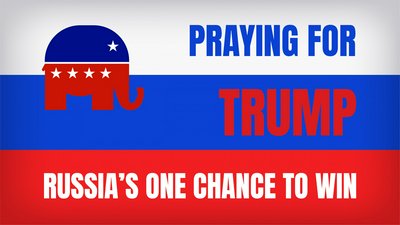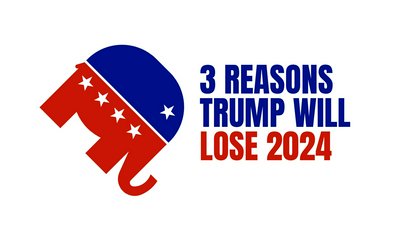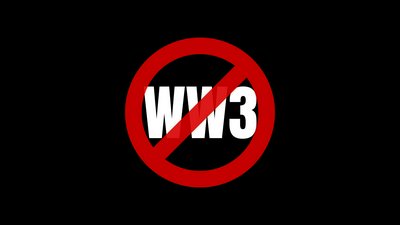economyFrance
Freedom is Losing: Freedom Will Win
Today, freedom is under attack across the globe, which shows a mutual lack of self-confidence. Ultimately, however, freedom is what made America the superpower it is today, and winners of the next great geopolitical struggle will be those most free.

In the last 24 months, a series of unfortunate events have undermined freedom across the globe: In Australia, premonitions that used to be smeared as “conspiracy theories” by MSM have turned true, as interment camps are set up for residents who refuse a medical procedure. In Austria, laws are proposed to the same effect, except Austrians, known for their “economic conservatism” if not real conservatism, have opted to use prisons instead of spending money on building new camps.
Along the Taiwan strait and in Southeast Asia, the US is determined to destabilize the region to preserve its hegemonic position. In response, the Chinese government is doing what for centuries made China weak: It is again extoling Confucius values internally while closing its doors to the outside; it tries to cultivate social harmony by taking away creativity.
The US itself does no better: Its corporations openly challenge the First Amendment, which is the foundation of the Bill of Rights and the US Constitution that made America great. Dissent is less and less tolerated, and a special class of wealthy and powerful individuals demonstrate that they stand above the law.
As we descend into an Orwellian new reality, there is little doubt that freedom is losing.
Confidence Underpins Freedom
Many Westerners have come to think of freedom of part of their cultural heritage. While it is warm and fuzzy to think so, one only needs to reflect on the Dark Ages and the Inquisition to rebuke this naïve notion. The recent period of freedom only took hold on the Old Continent after the erection of the Berlin Wall. It is the result of the West’s confidence in its economic and social, if not military, superiority over the Soviet Bloc.
By contrast, periods of receding freedom correlate with declining prosperity. For this, we only need to look at the prolonged decline of China during the Qing Dynasty.
Ironically, while some caution that the Chinese government, “dizzy with success”, may misstep in international affairs, its internal policies demonstrate that it is, on the contrary, unconfident, particularly in the new geopolitical conflict that it finds itself in with the US.
Freedom is What Made America Great
That, however, is not to say that America is confident. Far from it. Many Americans have a fear, perhaps unjustified, though rarely admitted, that the Chinese may “overtake” them along some undefined criteria. It is the result of an immature acceptance of the idea of “American exceptionalism”: contrary to their belief, God did not choose America great; America became great because it was Free.
Admittedly, it was never wholly free. Till this day, American bears the scars of genocide, slavery, racism, and imperialism. Nevertheless, it had an ideal that it marketed exceptionally well.
Thanks to freedom, American entrepreneurs have built some of the world’s biggest brands, American scientists have made some of the world’s foremost discoveries, and American artists have created some of the world’s most marketable works. Americans used to share two traits: They are exceptionally open, if not open-minded, and they are exceptionally self-confident, even when confidence is unfounded.
However, in the last two years, it has become clear that many Americans hate freedom. A glaring example can be found on Reddit. Reddit is the inventor of a “Social Credit System”; it is where users with more “upvotes” are adored, while those with worse social credit scores are ostracized. Right now, one can hardly miss the authoritarian spin among the US users, who use their social credit system to try to destroy what made America great.
A rather ironic aspect, which I touched on in my previous article, is that many Chinese officials went to study in the US in the 1980s and 1990s. However, after Nixon violated the Constitution and debased the US Dollar, after Carter betrayed his constituency (for which he lost his reelection) and gutted the labor unions, after Reagan started the “trickle-down” experiment, and after Clinton deregulated the media (which substituted news with opinions), what the Chinese learned was not what made America great: They learned what gradually weakened America’s position.
To understand what made America great, one must look at the institutions before America became great. In my judgement, Freedom and Rule of Law are the drivers of America’s success.
Only Freedom Can Win the Next Great Geopolitical Struggle
In the coming years, we cannot rule out direct confrontation among major economies. Taiwan and Ukraine are the two flashpoints, and we are clearly in a pre-WWI situation. Whether there will be a kinetic war or not, what ultimately wins this round of great geopolitical struggle, in my judgement, will be freedom.
First, freedom is the ideal that people across the globe look up to. It may be resented by those with an authoritarian spin, but the majority of the public want to be free. The powers that best symbolizes freedom in the eyes of the world will attract the best talents and goodwill, while the powers that stand against freedom will lose them.
Second, freedom is what safeguards economic and cultural prosperity. No person or machine is wise enough or long-living enough to plan everything for everyone. A free society, by contrast, thanks to its free institutions, allows all the wisdom of all the people to resonate.
While I think that in a military conflict China and Russia may win, ultimately it is the US that has the foundations of the institutions best suited for freedom. If China and Russia wants to win the next great geopolitical struggle, the time to build strong institutions that protect freedom and rule of law is now.



